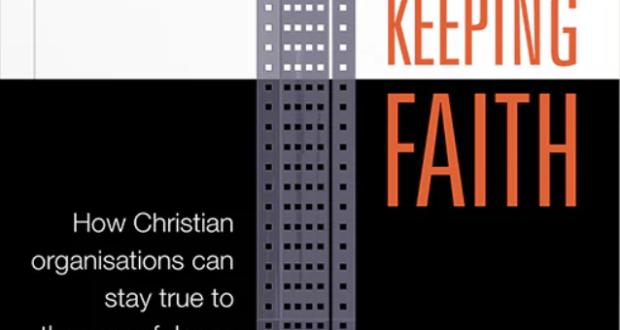Book Review by Rev Kate Fraser
You don’t have to participate in the Church for very long before hearing and perhaps sharing the concern that agencies of the Church are no longer embodying the values upon which they were founded. Consequently, I approached the reading of “Keeping Faith” with the hope that it would provide some useful guidelines for bringing the life of UCA agencies closer to living out the gospel.
Some very good points are made about Organisational Faithfulness (OF) in 2,3,4,5:
- Measures of Faithfulness include the ethos, identity and impact of the organisation
- OF exists when the core identity of an organisation can be recognised as explicitly Christian
- OF exists when the organisation employs Christian values both internally and externally
- The point is made that some Christian organisations may be more concerned with their external impact and neglect their internal ethos
- Theology matters for Christian organisations, the ability to reflect on their internal and external life and hold themselves accountable around values of hope, trust, forgiveness and redemption
- Organisational Faithfulness will shape attitudes towards risk, stewardship and radical hospitality
- A common pitfall is when the success of the organisation becomes the preeminent value
- Success can lead to empire-building with all its ego traps and power plays
By Chapter 6, some assumptions and assertions were being made that I could not agree with:
- When speaking of God’s grace, a distinction was made between “Common Grace”, which calls the church into mission in the world, and “Special Grace”, which was defined as the personal salvation which comes to a person when they declare Jesus is their Lord and Saviour.
- The claim is made on pg 48 that God’s grace does not become visible to the world through common grace i.e. the mission of the church.
Chapter 10 contains some good thinking around risk-taking and caused me to ponder whether the UCA has become risk averse rather than a risk manager; risk will always be a part of the mission
I concluded that this is a thought-provoking book that needs to be read carefully. One point the authors do not address is whether the organisations which the church begins actually need to maintain their affiliation with the church.
God’s mission in the world is often shaped by the church becoming aware of an unmet need and working humbly to meet it e.g. literacy in the 18th century, child care in the 20th century and aged care in the 21st century. Once the church has pioneered work in a particular area, secular organisations often join them in the endeavour.
There is a case to be made that when that happens, the church is freed to turn its attention to another area of unmet need in the world. Is the desire to hold on to activities it has pioneered an expression of the church’s temptation to build an empire rather than be faithfully countercultural?
I look forward to the discussion “Keeping Faith” stimulates for us.
Why not join us 7-8 pm next Tuesday, 6 June, to discuss the book at our online discipleship book club? All are welcome, and joining us for this discussion doesn’t require you to attend any of the future gatherings! Click here to register and receive the link to the meeting, and for further information, please get in touch with Paul Wetzig at paul.wetzig@ucaqld.com.au
(Stephen Judd, John Swinton, Kara Martin Acorn Press 2023)
 JourneyOnline
JourneyOnline







